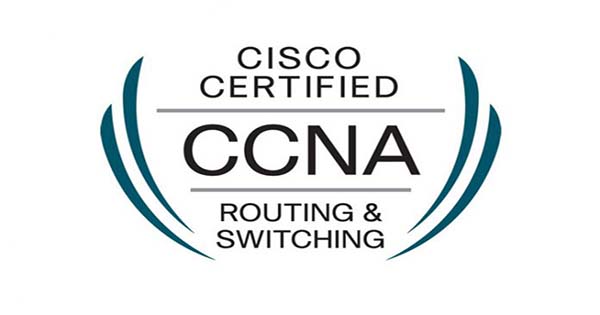
Benefits and Opportunities of QA Jobs in Nepal
Quality Assurance (QA) is a unified process designed to ensure that products or services comply with pre-determined requirements through a focus on avoiding defects and maintaining high standards during development. In the context of software development, Quality Assurance focuses on observing processes, discovering areas of improvement, and confirming the proper functioning of the final product with no errors present. Adopting this proactive tactic improves productivity and strengthens product quality, ensuring results that satisfy the client’s expectations. Nepal has seen a significant rise in the role of Quality Assurance due to the rapid growth of software development enterprises and startups. The continued developments in the tech industry have caused businesses to realize the necessity of delivering reliable and high-quality software to remain competitive on both local and international levels. During this process, Quality Assurance is critical for ensuring that products have been thoroughly tested before reaching the market, which benefits customer trust.
Nepal's QA job sector is growing, along with the increasing demand for skilled professionals. The competitive pay associated with QA roles is growing higher as companies give quality a greater focus on their products. While the largest proportion of employment in tech is based in Kathmandu, the main tech hub in Nepal, other emerging cities like Pokhara are playing an increasingly significant role in the IT sector. In general, the role of QA has become critical for Nepal’s growing tech industry, providing promising jobs for those involved in this sector.
Skills Required for QA Jobs
QA jobs require a keen eye for detail, strong analytical skills, and a solid understanding of software development processes. Proficiency in testing methodologies, bug tracking tools, and the ability to create and execute test cases are essential. Effective communication skills are also important for collaborating with developers and ensuring quality standards are met.
Technical Skills:
- Testing Methodologies: Interpretation of black-box, white-box, and grey-box testing practices to analyze how well software functions, its code architecture, and what functions it can perform.
- Test Case Design Techniques: Possess the ability to generate test cases that draw on methods such as Equivalence Partitioning and Boundary Value Analysis to treat a wide array of test scenarios.
- Defect Tracking Tools: A grasp of tools such as Jira and Bugzilla assists in organising, reporting, and tracking bugs throughout the entirety of the software development process.
- Programming Languages: An important understanding of programming languages like Python and Java is needed for crafting test scripts, building automation frameworks, and addressing test case issues.
Soft Skills:
- Attention to Detail: Being aware of even small details is essential to identify any defects or issues in software performance.
- Analytical Thinking: Crucial for the detection of software defects is the skill of logically analyzing issues, deconstructing challenging problems, and finding possible solutions.
- Problem-Solving: Skilled in problem-solving to locate the heart of issues and suggest practical solutions or methods.
- Communication: Effective and clear communication abilities are essential for collaboration with developers, designers, and other stakeholders on issues related to defect management, solutions, and enhancements.
- Teamwork: The talent for working effectively as a team, having collaborative group discussions, sharing thoughts, and correctly cooperating to maintain high product quality standards.
Popular QA Job Roles in Nepal
Popular QA job roles in Nepal include Quality Assurance (QA) Engineer, Software Tester, Automation Tester, and QA Analyst. QA Engineers focus on ensuring software meets quality standards, while Software Testers manually test applications for bugs. Automation Testers specialize in using tools to automate testing processes, and QA Analysts are responsible for analyzing and improving the testing process to enhance product quality.
- Software Quality Assurance Engineer: Software Quality Assurance (SQA) Engineers are instrumental in making sure that software products conform to quality standards. They conceive and apply testing tactics, perform test cases, and partner with development teams to discover and deal with defects.
- Test Engineer: The main objective of Test Engineers is to introduce software checks for bugs and problems at the beginning of development. They are tasks with managing test plans, providing test environments, and assessing software performance as well as reliability through manual or automated tests.
- Quality Analyst: Quality Analysts monitor the development and QA teams to comprehend system needs and build detailed test scenarios. Tests are conducted by them to confirm that software features behave as expected, while also documenting these results; they often spend a lot of attention on business logic and user needs.
- Automation Tester: Automation Testers make use of tools such as Selenium or JMeter to automate repetitive testing activities and so enhance efficiency. They develop test scripts, automate procedures, and guarantee faster and more reliable testing, which in turn lowers manual labour and heightens productivity.
- Performance Tester: Performance Testers aim to analyze software performance, scalability, and responsiveness during a range of conditions. JMeter is one of the tools they use to simulate realistic situations and ensure that the software can maintain its performance under predicted user demands.
Challenges and Opportunities in QA Jobs in Nepal
QA jobs present several challenges, including keeping up with rapidly evolving technologies, managing tight deadlines, and ensuring thorough testing in diverse environments. The complexity of automation tools and balancing manual vs. automated testing can also be difficult. However, opportunities abound in QA, with high demand for skilled professionals, the potential to specialize in automation or performance testing, and career growth into roles like QA lead or software quality manager. The increasing focus on software quality and user experience makes QA a vital and rewarding field.
Challenges in QA Jobs in Nepal:
- Lack of Skilled Professionals: Regardless of the increasing demand, there is a scarcity of skilled Quality Assurance (QA) professionals in Nepal, making it challenging for companies to locate suitable talent to maintain high-quality software.
- Tight Deadlines: Faced with tight deadlines due to the brisk pace of software development processes, QA teams frequently need to uncover defects and guarantee quality within constrained periods.
- Changing Requirements: Ongoing project requirement shifts can make testing difficult, as Quality Assurance teams must update their test cases and techniques to integrate altered features.
- Limited Resources: In some instances, QA teams must operate with constrained resources, including outmoded tools or a limited team size, which can affect their capability to conduct thorough testing and automation.
Opportunities in QA Jobs in Nepal:
- Growing Demand for Quality Software: In Nepal, the surge of software development companies and startups has increased the demand for reliable, high-quality software, thereby strengthening the requirement for QA professionals.
- Government Initiatives to Promote Technology Adoption: Nepal's government is pursuing initiatives to endorse technology uptake and digital metamorphosis, giving rise to more opportunities for QA jobs with the continuing growth of the tech sector.
- Potential for Innovation and Entrepreneurship: With the ability to innovate in testing techniques, QA professionals may start their businesses centred on QA services or offer consulting in a rapidly growing marketplace.
How to Break into Quality Assurance (QA) in Nepal?
To venture into Quality Assurance (QA) in Nepal, one needs a mix of education, practical experience, and planned networking.
- Education and Training: To start, it’s recommended to collect foundational information in QA from online courses and certifications offered by Coursera and edX. Specialized boot camps for Quality Assurance (QA) offer practical training, which can help learn testing methodologies, tools, and frameworks.
- Building a Portfolio: Develop a document to illustrate your QA skills. Commit to projects that let you test apps or websites, and add value to open-source projects to illustrate your experience in the real world. A compelling portfolio can help you to stand out from the crowd for potential employers, showcasing your technical expertise.
- Networking: To access the QA field, networking is important. To connect with professionals and keep informed about the newest trends, go to industry events and conferences. Join communities that are online, such as QA forums and LinkedIn groups, to connect with experienced QA engineers and gain important insights.
- Job Search Strategies: Take advantage of online job portals in Nepal such as JobAxle to look for Quality Assurance job postings. Start by seeking out young tech or startup companies, as they typically look for beginning QA professionals. Ultimately, it's recommended to engage with QA professionals in Nepal to seek out concealed job opportunities and receive referrals.
Future Trends in QA in Nepal
Emerging technologies are transforming the QA landscape, with Test Automation becoming increasingly popular through tools like Selenium and Appium, which enhance testing efficiency. The integration of Artificial Intelligence (AI) in Testing is also revolutionizing automated testing by generating intelligent test scenarios, predicting bugs, and conducting rapid analyses. Moreover, DevOps and QA Integration is advancing, emphasizing continuous testing and project releases, and improving collaboration between development and QA teams. On the security front, Security Testing is gaining importance as companies prioritize data protection, and the demand for Penetration Testing is growing, requiring professionals to simulate attacks and identify vulnerabilities. In terms of job roles, Security Testers focus on minimizing application security risks, while Performance Testers bring specialized skills to assess software performance and scalability across various environments.
Why Choose TechAxis for the Best QA Training in Nepal?
TechAxis is the top choice for QA training in Nepal, offering a comprehensive curriculum, experienced instructors, and a hands-on learning approach. The training covers both manual and automation testing, focusing on tools like Selenium and Appium, ensuring students gain in-depth knowledge and practical skills through real-world projects. TechAxis also provides career support, helping students secure QA jobs and internships in Nepal. With an online QA training course available, learning is flexible and accessible. Additionally, TechAxis keeps students up-to-date with the latest trends in QA, preparing them for the evolving demands of the industry and helping them build successful careers in Quality Assurance.











